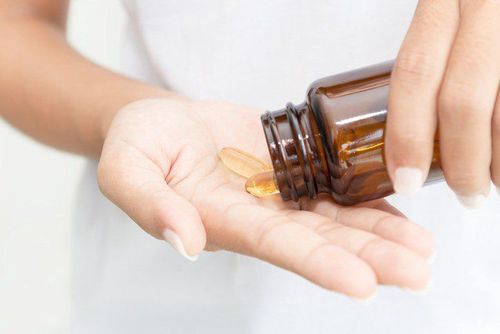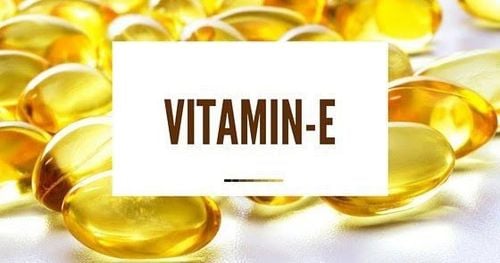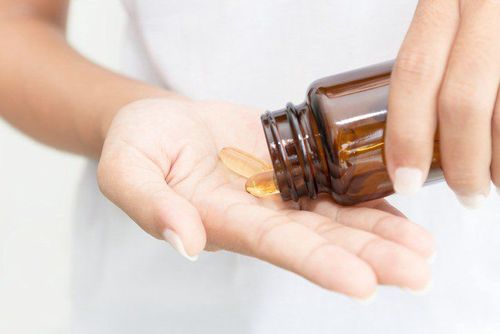Vitamins are essential for maintaining your immune system, cell function, and skin health. They are antioxidants that help to combat free radicals produced by food metabolism and environmental pollutants. Vitamin E supplements have been increasingly popular in recent years. However, the advantages and disadvantages of vitamin E administration remain uncertain.
1. The Role of Vitamin E
Vitamin E is essential for eyes, reproduction, and the proper functioning of the blood, brain, and skin. It is an antioxidant that may help reduce UV damage to the skin. As a result, many people, particularly women, are concerned about how to take vitamin E for radiant skin.
Antioxidants are chemicals that can protect cells from the effects of free radicals—molecules produced when the body digests food or is exposed to cigarette smoke and radiation. Free radicals may play a role in heart disease, cancer, and other illnesses. If you take vitamin E supplements for its antioxidant effects, keep in mind that they may not be as effective as natural antioxidants found in meals.
Foods high in vitamin E include canola oil, olive oil, margarine, almonds, and peanuts. Meat, milk, green vegetables, and fortified cereals are also sources of vitamin E. Vitamin E is also available as an oral supplement in pill or drop form.

2. Why do people take vitamin E?
Many people take vitamin E supplements in the expectation that the antioxidants will prevent or treat disease, or promote healthy skin. However, vitamin E research for the prevention of cancer, heart disease, diabetes, Alzheimer's disease, cataracts, and a variety of other illnesses have yielded poor results.
To date, the only documented benefits of vitamin E supplementation have been in persons who are severely deficient. This is because Vitamin E insufficiency is uncommon. Deficiency is most likely in those who have disorders, such as digestive difficulties or cystic fibrosis. Furthermore, persons who follow extremely low-fat diets may have low vitamin E levels.

3. Amount of vitamin E to use
The recommended dietary allowance (RDA) for vitamin E comprises both food and supplements. The recommended dose of vitamin E (alpha-tocopherol) is measured in milligrams (mg) and international units (IU).
- Children:
- Aged 1 to 3 years: 6 mg/day (9 IU).
- 4–8 years: 7 mg/day (10.4 IU)
- 9–13 years: 11 mg/day (16.4 IU).
- Women:
- 14 years and older: 15 mg per day (22.4 IU).
- Pregnant women: 15 mg per day (22.4 IU).
- Breastfeeding mothers: 19 mg per day (28.5 IU).
- Men: 14 years and older: 15 mg per day (22.4 IU)
See also: How much Vitamin E should you take?
The tolerated upper intake limit of certain supplements represents the maximum quantity that most people can safely consume. Higher doses could be used to treat vitamin E insufficiency. However, they must be prescribed by a physician. The tolerated intake level (UL) of vitamin E (alpha-tocopherol) is measured in milligrams (mg) and international units (IU).
For Children:
- 1 to 3 years: 200 mg per day (300 IU)
- 4–8 years: 300 mg/day (450 IU)
- 9–13 years: 600 mg/day (900 IU)
- 14–18 years: 800 mg/day (1,200 IU).
- 19 years and older: 1,000 mg/day (1,500 IU)
Because vitamin E is fat-soluble, consuming with fat improves absorption.

4. Natural sources of vitamin E in food
Food provides the majority of people's vitamin E requirements. Vitamin E-rich foods include vegetable oils (wheat germ, sunflower, and safflower oil, as well as soybean oil), nuts (peanuts, hazelnuts, almonds, and sunflower seeds), green vegetables (spinach, broccoli).
5. When should I take vitamin E?
There is some dispute over whether to take vitamins in the morning or at night. The assumption is that because you have acquired nutrients throughout the day from food, taking supplements at night allows your body to absorb some nutrients while sleeping.
Jeffrey Blumberg, a professor of nutritional science at Tufts University in Boston, disagrees. He recommends taking vitamins in the evenings. Because the digestive process slows down during sleeping, consuming nutrients/vitamins at night will not be effectively absorbed.
Vitamin E is fat-soluble, thus it must be consumed alongside fatty meals for absorption. You can take vitamin E after meals, lunch, or supper, or before bed.

6. Risks of Vitamin E Supplementation
The hazards and benefits of vitamin E administration remain unknown. Studies have connected vitamin E use to an increase in hemorrhagic strokes. Furthermore, a clinical investigation found that taking synthetic or natural vitamin E at dosages of 400 IU/day or above increased the chance of death. Cardiovascular investigations have also found that people with cardiovascular illness who took 400 IU of natural vitamin E per day were more likely to develop heart failure and require hospitalization for it.
Vitamin E supplements may be dangerous if consumed early in pregnancy. One study discovered that women who used vitamin E supplements during the first 8 weeks of pregnancy had a 1.7- to 9-fold higher risk of congenital heart abnormalities. However, the actual amount of vitamin E supplements consumed by the pregnant women in this study is uncertain.
A large population study discovered that males who used multivitamins more than seven times per week, together with supplemental vitamin E supplements, had a considerably higher risk of prostate cancer.
The American Heart Association suggests receiving antioxidants, including vitamin E, from a healthy diet rich in fruits, vegetables, and whole grains rather than using vitamin E pills.

7. Side Effects of Vitamin E Supplements.
- Topical vitamin E may cause skin irritation.
- Overdoses of vitamin E pills can result in nausea, headaches, bleeding, exhaustion, and other side effects.
- People who are on blood thinners or other drugs should see their doctor before taking vitamin supplements.













